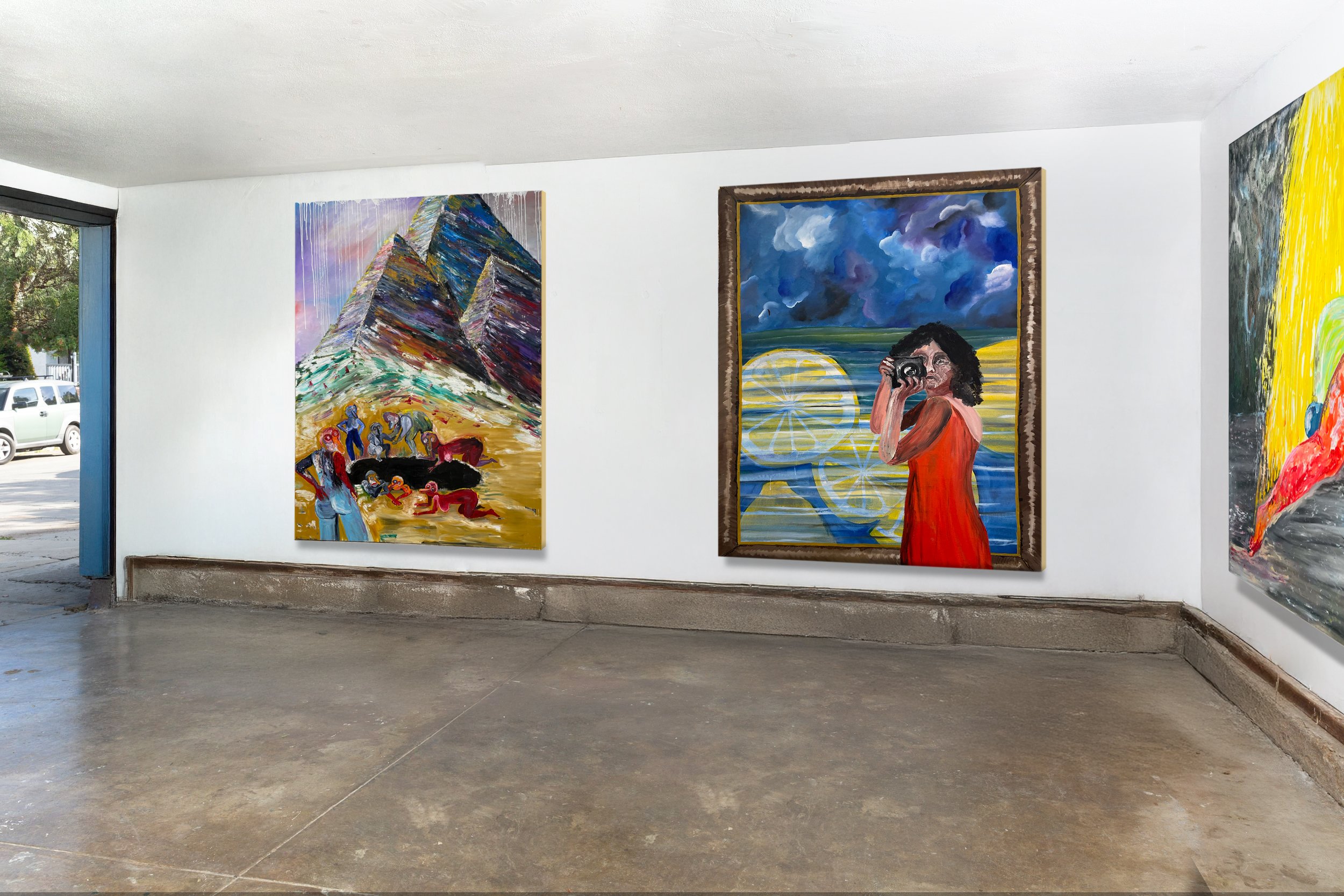Haniko Zahra: Mirror of Contradictions
14 October – 5 November 2023
Opening: 14 October, 7–10 pm
Flower Head is proud to present Mirror of Contradictions, a solo exhibition of recent paintings by Iranian-born artist Haniko Zahra. Drawing from a life shaped by the complexities of post-revolutionary Iran and a deeply personal confrontation with societal structures, Zahra's work offers a raw, poetic investigation into identity, power, and the human condition.
Zahra’s paintings emerge from the tension between restriction and resistance, confronting the inherited norms of a patriarchal society while embracing the contradictions that define lived experience. Her compositions are deeply autobiographical yet universally resonant, built from fragments of dreams, memories, and daily observations. Through bold figuration, historical abstraction, and critical representation, Zahra creates a visual language that is both confrontational and tender, structured and messy—much like life itself.
“Growing up under the male gaze taught me to see myself from the outside, but painting gave me a way to reverse that gaze,” Zahra notes. Her canvases often feature nude female figures and symbolic animals, not as provocative subjects, but as agents of truth, agency, and reclamation. These forms act as conceptual mirrors, reflecting the inner and outer worlds she inhabits, always with an eye on how to transform the “facts” of existence into new possibilities.
Rather than offering straightforward narratives, Zahra’s work invites viewers to navigate layered visual terrains where personal history, literature, media, and collective memory collide. While grounded in Iranian cultural and political reality, her approach resists nostalgia. Instead, her paintings lean toward the future—asking what it means to imagine beyond normalized structures and embrace vulnerability as a site of strength.
Mirror of Contradictions reveals Zahra’s masterful ability to use painting as a critical tool—to question, reflect, and resist. Her work challenges the viewer not only to see, but to feel, to reckon, and to remember what we too often forget: that beauty, identity, and meaning are born not from perfection, but from fracture, complexity, and transformation.











